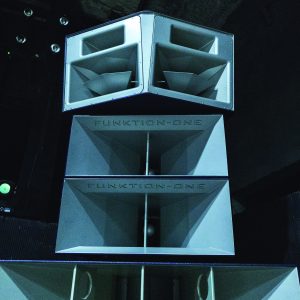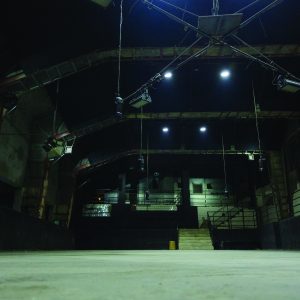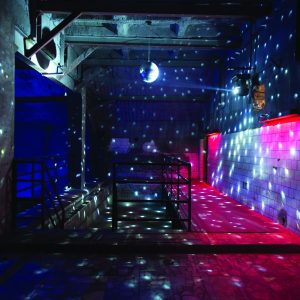Bassiani, the most underground techno from the planet
// Por: Staff
vie 25 mayo, 2018
By: Juan Carlos Canales
I would’ve never imagined that one of the most famous and respected techno clubs in the world was in Tbilisi, the capital of Georgia, an ultra-conservative former Soviet republic inhabited by 3.7 million people, 35% of whom live, exactly, in Tbilisi. This country is mainly orthodox Christian (90% of its inhabitants) and its capital has lived under the sway of Russia since the fall of the USSR; in fact, nowadays part of Abkhazia and South Ossetia is occupied by the Russian army. On the political side, they want to get closer to the United States, which was evident when my visit coincided with a secretary of American state and see the entire downtown with American flags; quite a bizarre environment.
Knowing more about Bassiani, that famous club, led me to contact Naja, Tato and Zviad, its founders, something complicated because their work focuses on the social field rather than their role as entrepreneurs. They are part of the White Noise movement, which fights for human rights and Georgian legislation on drug consumption in a country where there is no difference between consumption and sale, there are no categories between them and there is no minimum consumption; it doesn’t matter if you have a couple of grams of hashish or half a kilo of heroin, both of which cause high prison sentences. Before all this, White Noise achieved the first authentic manifestation, withm 10 thousand people, in a place where there is no right to demonstrate in public.
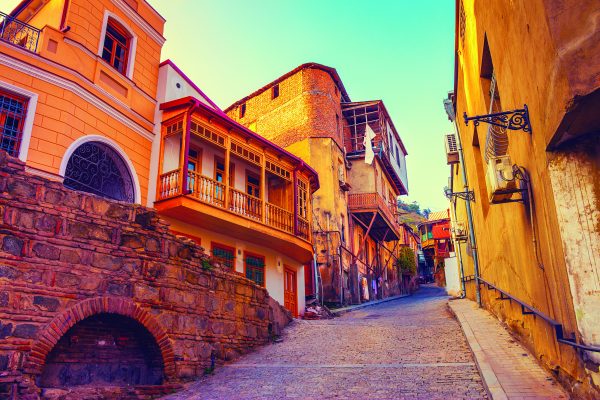
I went to Tbilisi on the closing night of the season (the place closes during the summer). There, Tato and Zviad invited me to have lunch at Khasheria, a typical food place whose spicy flavor is highly valued on the other side of the world. On that occasion we were also joined by Dave Summer, a.k.a. Function, a DJ invited to the event. These men are around 30 years old, they are prepared people, with master’s degrees in European universities and clear ideas; their goal is to bring Georgia closer to Europe, respect for human rights and the freedom of people to decide about themselves. For them, Bassiani is a means to attract international reflectors to witness what is happening in their country. Getting together to listen to music and dance has a social meaning that wasn’t there in electronic music from Detroit, in the 80s, when it was economically devastated and with the highest rates of homicide, the black community mixed funk, African rhythms and synthesizers and they called it techno, inspired by the book “Future Shock”, by Alvin Toffler, Juan Atkins, Derrick May and Kevin Saunderson among its pioneers.
It’s fascinating to see how music is achieving cohesion in Georgian youth for a cultural change that overcomes the ghosts of communism and persecution.
Bassiani is in the basement of the Dinamo stadium, where the national team plays, what in Soviet times were pools; the dance floor is the main pool and the DJ plays in the children’s pool. It was in 2014, when searching for a venue, that Dinamo managers who attended their parties invited them to move in. This place is cataloged as the new Berghain, where DJ’s and record companies want to have a night and people from all over the world travel to live the experience.
This was a closing night and the line to get in was quite large. When I reached the door I could see their strict access controls, because they have had problems with extreme right groups that have tried to attack their public. It’s policy is not to let anyone in who can alter the order or who bothers any assistant, which caused a lot of discussion at the door. Each visitor is intensely searched and each identification is recorded.
Once inside, you go down a tunnel and you know that you are in another dimension. The first thing you see are dark passages and, in that moment, you start to feel the basses. Within Bassiani there is a second hall called Horoom, a white room whose only decoration is a pair of crucifixes. The void sound is perfect for the musical direction offered. This place is famous for its openness and because people from the LGBT community are not judged. I thought it would be an intense place in terms of sex, as in several sections of clubs in Germany; It was the opposite, with a very relaxed atmosphere in which HVL played live a set house with a lot of attitude. The place was full, and the most I saw was a couple of women kissing and couples of men hugging each other. In a macho country, it is a great advance to have places where diversity is respected.
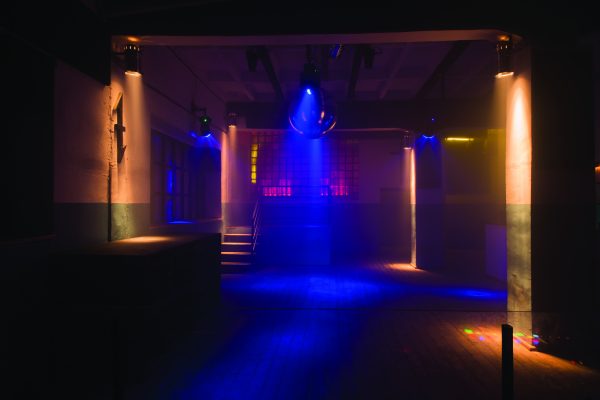
Bassiani is sounding perfectly with several Funktion One towers. There isn’t an area where you can’t hear the music, which I thought was excellent. You come here without pretentiousness, without VIP. There is no happier and more authentic place than a dance floor where we are all equal, I have been among the most respected clubs in the world and I have never seen people dance with such passion and debauchery, with their style and rhythm, a perfect work of art . That night, all the residents played, I didn’t know what to expect but I found a pleasant surprise: any of them could play in any European capital of techno. The ones I liked the most were HVL, Merucurrio and Zitto, with a fresh and different sound.
Function closed with a musical masterclass. I knew that he was going to break it after the meal a few hours before, when we went up to a viewpoint to watch the sunset; a beautiful summer postcard of the city. Function was several months without going on tour for health reasons but he recovered and now he had the great honor of closing the season in Bassiani. He played for four hours, with a set that had very powerful bass and a lot of speed, full of songs from his brilliant new “EP Recompiled I / II”, under the German label Osgut Ton. It also included classics like ‘Subzero’, by Ben Klock, and a remix of ‘Strings of Life’, by Derrick May. The highlight of the night came with a very techno remix of ‘O Fortuna’ (Carmina Burana), a war cry that made people crazy and showed why it is one of the most beloved residents of Berghain and one of the heavyweights of American techno.
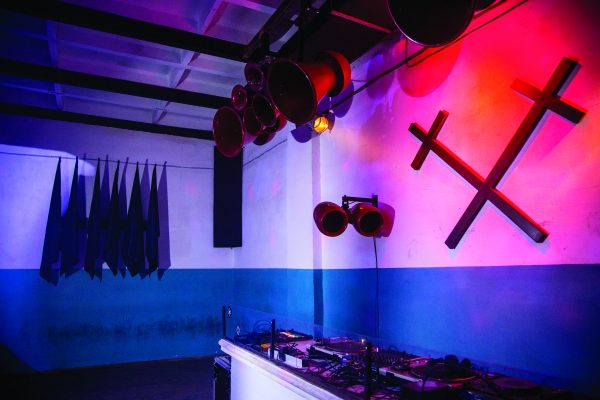
While I was dancing, I didn’t miss any detail of the place and I wondered what Stalin (a Georgian born in the city of Gori) would say if he saw young people protesting against the lack of opportunities and marginalization in the swimming pools where he kept the people oppressed, without spaces to express themselves.
Something that makes Bassiani’s experience unique is that there is no consumption of recreational drugs, the most I saw were small groups that smoked hash in bottles of water with the intention of not wasting it, since the monetary cost and the risk for possession is very high. The consumption of alcohol, on the other hand, is low, and people take chacha, the Georgian vodka.
Bassini closed at 1:00 pm and the party continued at the Horoom where the residents made a B2B house with a lot of groove. The party ended two hours later with the same intensity it had when it started. What makes Bassiani unique is that it exists in a concept that is far from its reality.

Puedes leer el articulo en español dentro de la siguiente liga.
